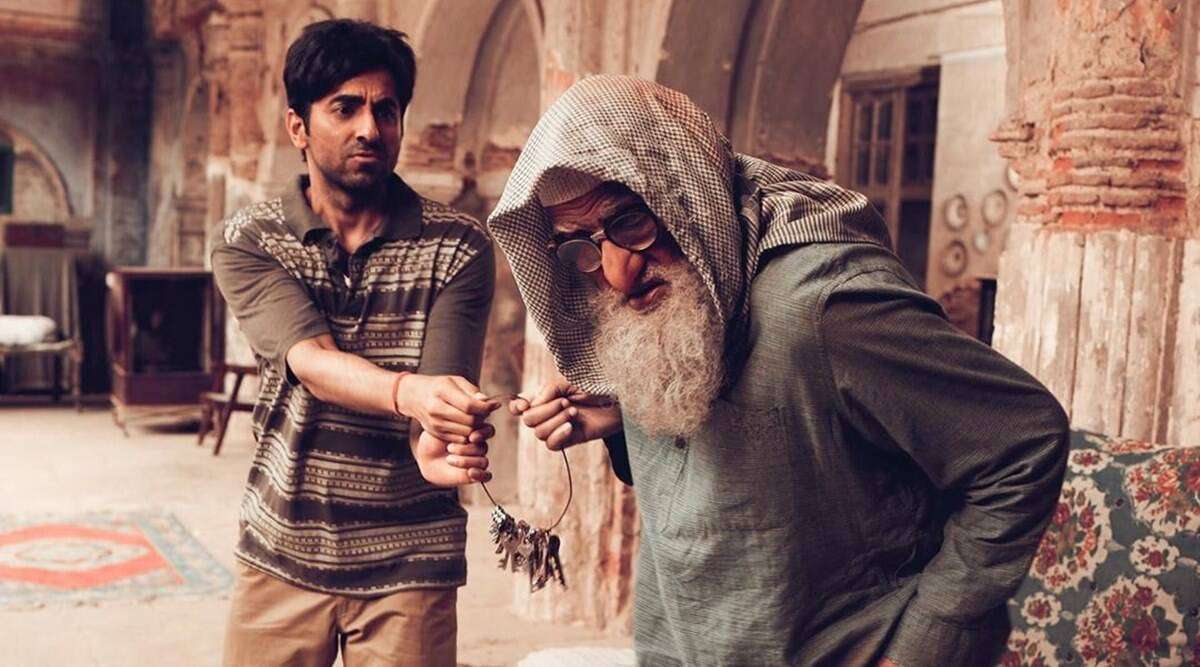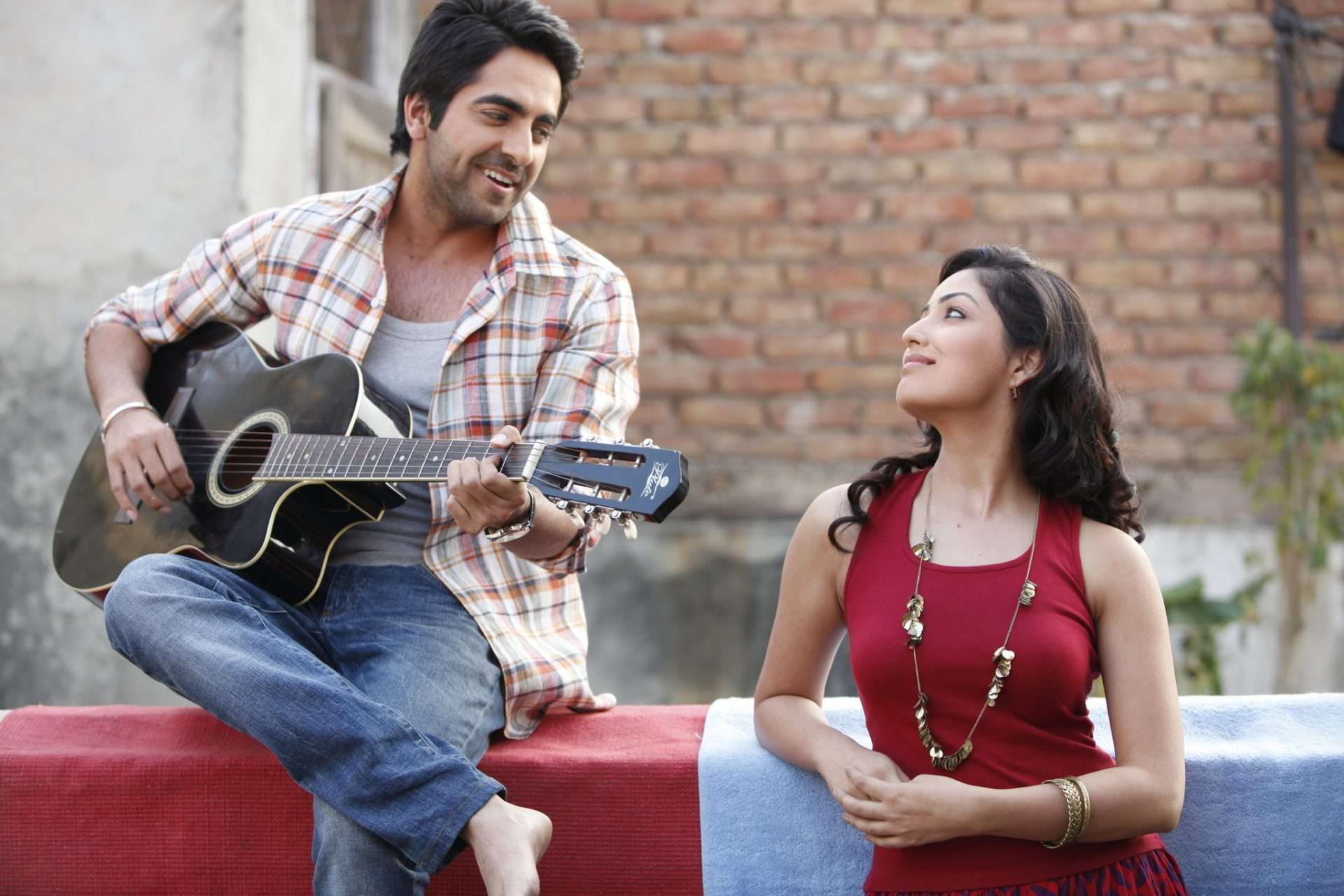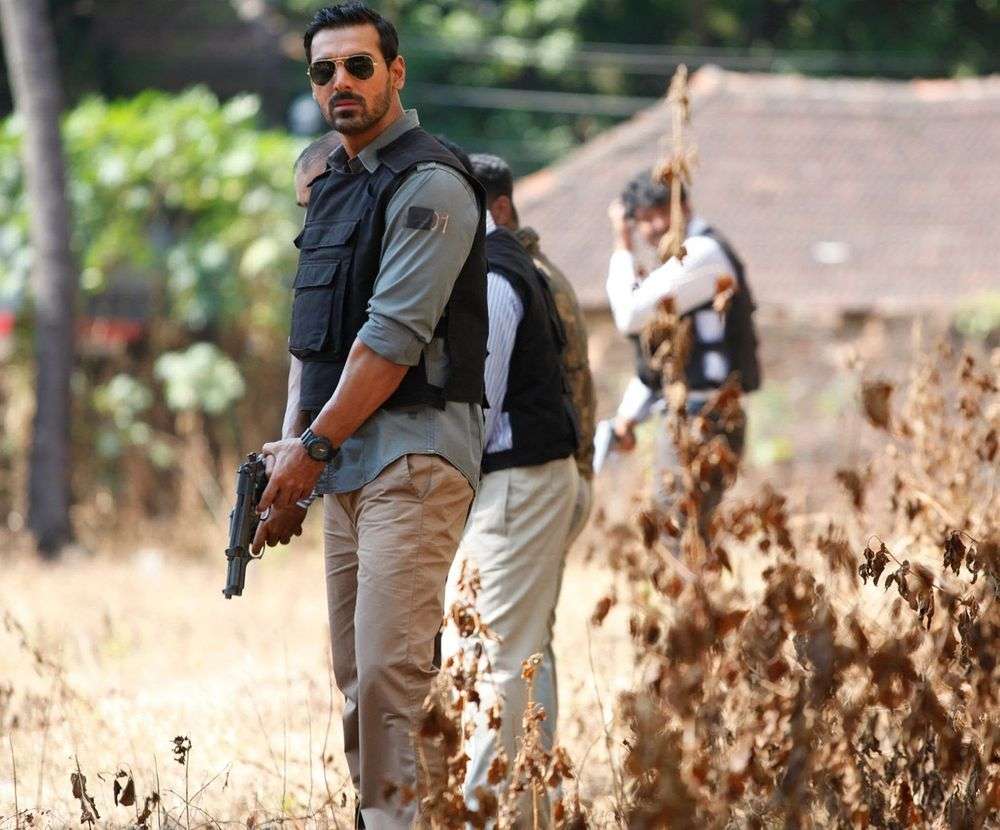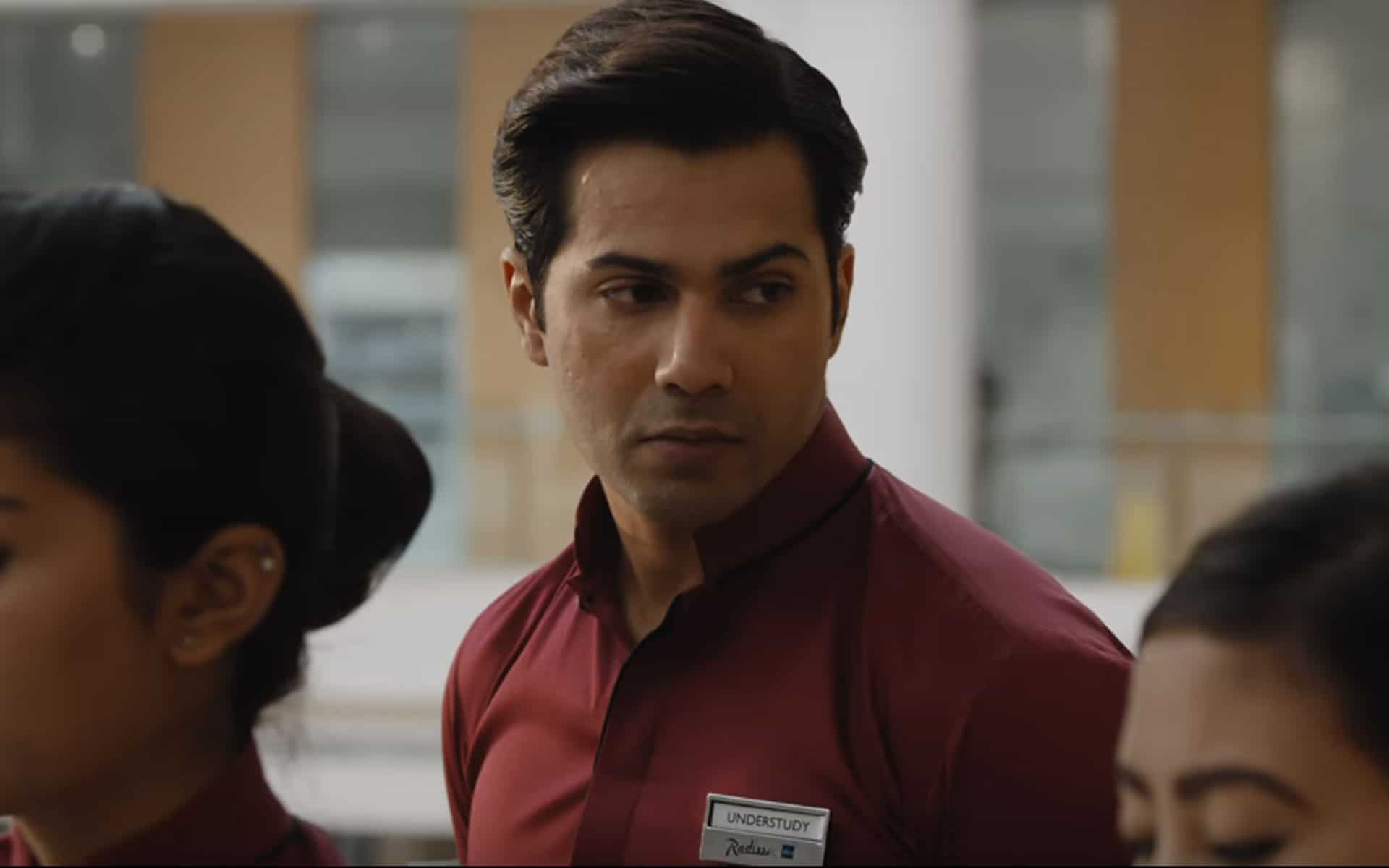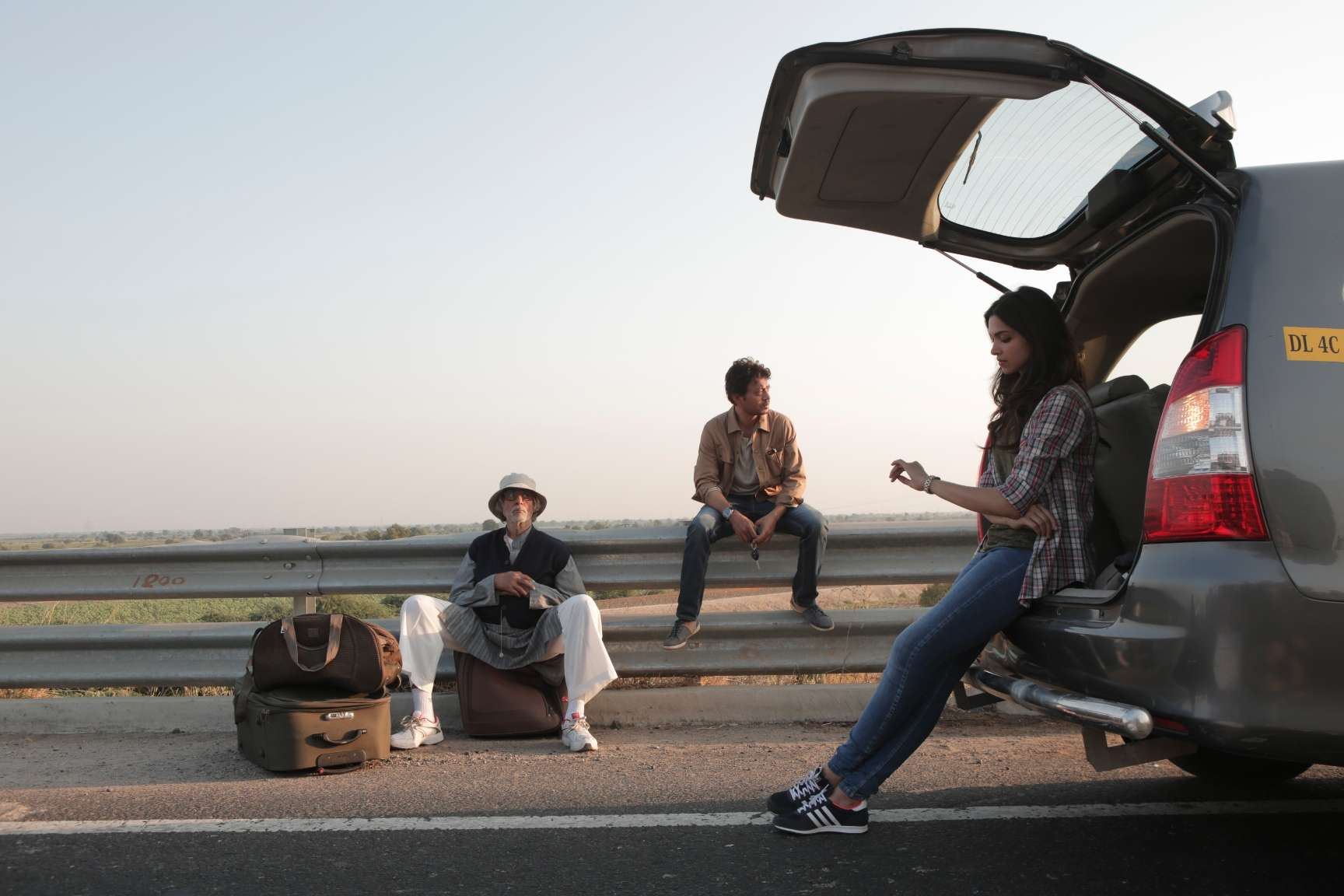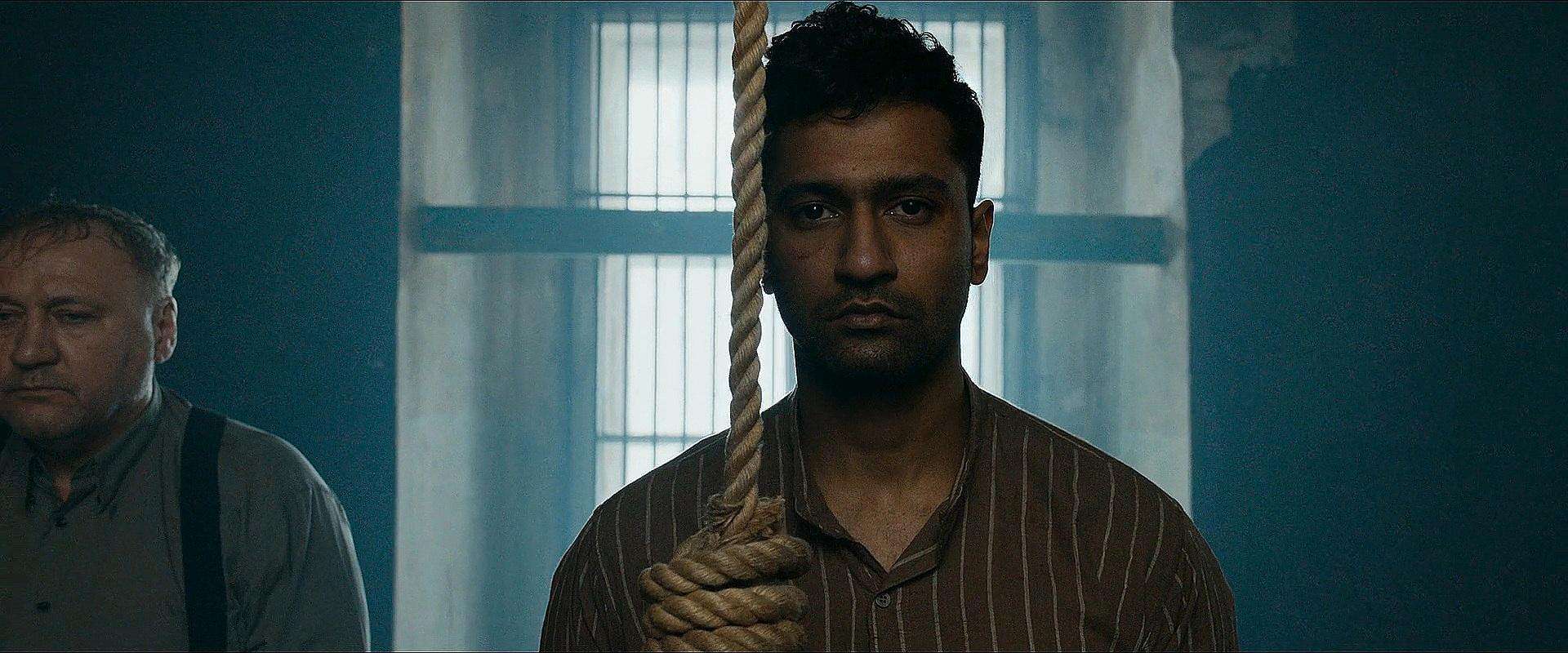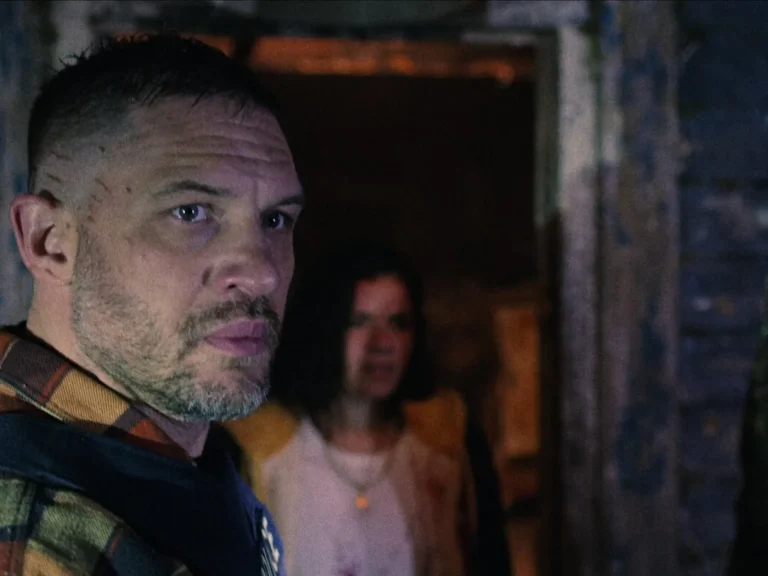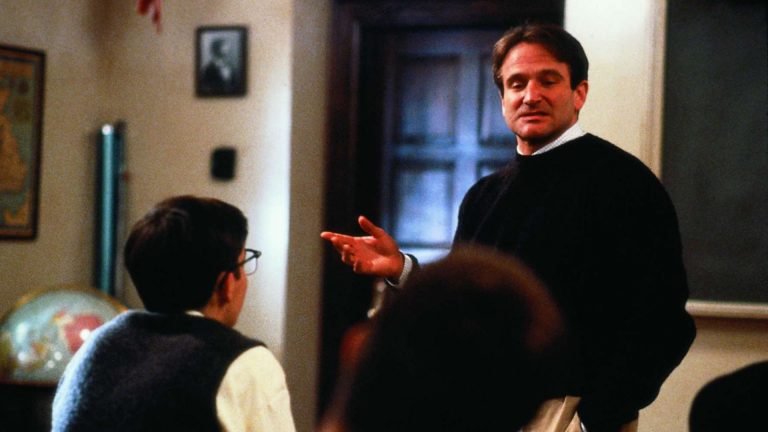One of the more promising and consistent Indian filmmakers of this generation, Shoojit Sircar is most well-known for his steady, yet lightly feathered, bereft melodrama exploration of the human condition. Heavily leaning into the documentary style of storytelling, Sircar’s filmmaking is characterized heavily by unobtrusive use of the camera, hard cuts, and a vignette-heavy narrative that manages to encapsulate both the individualism as well as the collective nature of any political or historical event. It’s an extraordinary filmography, which is as remarkable as it is unassuming, simply because of the consistency of the quality of Shoojit Sircar’s movies.
8. Yahaan (2005)
Relatively weak in his filmography but no less impressive, “Yahaan” is also the first of two films where Sircar deals with a political conflict, albeit set as the backdrop rather than heavily foregrounded, and follows the story of a Hindu army officer, Captain Aman (Jimmy Shergill), and Kashmiri girl Adaa (Minissha Lamba). But the hurdles in their love story have far more detrimental consequences, integrated within the socio-economic situation of Kashmir.
It’s impressive how the budgetary constraints of the film could be brushed over by the sheer execution in direction, highlighting a strong familiarity with mainstream treatment. The cinematography too is extraordinary. The pacing is on the slower side rather than being termed as methodical, but like Sircar’s films, there is an insinuation of favoring naturalism within the dichotomy of normalcy and violence due to having lived in the middle of conflict zones, which works for this film.
7. Gulabo Sitabo (2020)
Set in present-day Lucknow, “Gulabo Sitabo” is as much a social satire as it is a slapstick comedy about two peculiar individuals of different generations but with similar intensity of peculiarity: Mirza Chunnan Nawab, the ghar jamai at Fatima Mahal, a dilapidated mansion, and Baankey Rastogi (Ayushmann Khurana), a poor tenant of that mansion.
Shoojit Sircar and cinematographer Avik Mukherjee are in love with old Lucknow—the derelict mansions and broken walls. From the onset, there is a battle of wits between a landlord and his tenant, which ranges from irritating words to Tom and Jerry-level hijinks. The idiosyncrasy takes on a much larger shape when the side characters enter the picture—a silver-tongued archaeologist, and a hustling lawyer.
In the midst of all that bureaucratic headache and cat-and-mouse war, “Gulabo Sitabo” tests your patience, demanding your attention. What Juhi Chaturvedi’s script utilizes is concealing the main point of the story in a cat-and-mouse story until the very end. It’s an ambitious piece of storytelling, using an entire film to conceal the overall point, more chuckle-heavy in comedy than laugh-out-loud funny, faltering in its payoff.
6. Vicky Donor (2012)
A do-nothing loafer named Vicky Arora (Ayushmann Khurrana), in search of a better life and job opportunity, crosses paths with an infertility doctor, Dr. Baldev Chaddha (Anu Kapoor), who has more failures than successes in his fertility clinic. Vicky and Chaddha’s partnership, with Vicky becoming the largest sperm donor for Chaddha’s clinic, becomes a mutually beneficial one until Vicky’s family and his newly married wife learn of his secret.
“Vicky Donor” could be termed as the soft reboot of Sircar’s career, putting Sircar on the map, as well as its leads, Ayushmann Khurrana and Yami Gautam. But more importantly, in terms of its filmography, “Vicky Donor” feels like the beginning of Sircar’s lightly unfurled exploration of familial dynamics that he would explore further in “Piku” as well as “I Want to Talk.” Like those two films, it also deals with a subject previously not tackled in Indian cinema (sperm donation) and chooses to situate it within situational and witty comedy enclosing a message-oriented story, as well as ensuring that even as it delves into melodramatic territory, the performances keep it grounded.
Also related to Shoojit Sircar Movies: The 10 Best Hindi Movies of 2024
5. I Want to Talk (2024)

Shoojit Sircar’s latest exploration of human beings’ resilience in existing with disease plaguing one’s body, tackled humorously, is rather muted in the humor but no less effective. Adapting the true story of laryngeal cancer survivor Arjun Sen, who would go on to live far beyond the 100-day expectancy as diagnosed by the doctors, the film by Sircar, while adapting a screenplay by Ritesh Shah, is a low-key affair. The film’s relationship with the usual Bollywood comic melodrama, where the sound design and background score carry the lion’s share of evoking emotions, is in sharp contrast.
“I Want to Talk” explores the fragility of life, and especially the suddenness of the onset of a debilitating disease, and the mundanity of that onset. But what he also wants to portray is the quiet resilience, the character’s stubbornness to live his life on his terms without fanfare. The salesman perspective becomes paramount for this film because while the film portrays Sen conducting market research and manipulating his attending physician to let him undergo more and more surgeries to prolong his lifespan, it’s the unspoken and unseen manipulation that Sen applies upon himself that is fascinating. For a movie so solipsistic about its perspective, it is surprisingly distant in exploring the inner turmoil faced by the character, but that distance also grounds the film.
4. Madras Cafe (2013)
Shoojit Sircar’s third film, “Madras Cafe,” feels like a conglomeration of documentary and fiction, but not necessarily docufiction. It follows Major Vikram Singh (John Abraham), an Indian Army Special Forces officer appointed by R&AW (Research and Analysis Wing) to head covert operations in Jaffna after the IPKF (Indian Peace-Keeping Force), appointed to maintain peace in Sri Lanka, was forced to withdraw. While there, he meets British journalist Jaya Sahni (Nargis Fakhri), who wants to reveal the truths about the LTTE and the Civil War, as well as uncover a conspiracy to assassinate former Prime Minister Rajiv Gandhi.
Sircar’s handling of the material that could be called historical fiction would push it beyond the fiction part because he grounds it in realism and geopolitical information that introduces a density regarding history and politics that had hitherto been unseen in political thrillers, be it through archival footage or newspaper clippings. It helps that the physical presence of John Abraham actually trumps any acting limitations of the man, though that can’t be said about Nargis Fakhri, who is severely miscast. The only issue that pushes this movie somewhat low on this list is Sircar wishing to explore Vikram’s personal life, which forces the film to somewhat meander.
3. October (2018)
Shiuli (Banita Sandhu) and Dan (Varun Dhawan) are interns working at the same hotel, but they are like chalk and cheese in terms of their discipline. While Shiuli is responsible and disciplined about her job, Dan struggles with the different departments within the hotel, forcing him to come into conflict with their boss. As a result, both Shiuli and Dan share a somewhat antagonistic relationship, which suddenly changes due to an accident where Shiuli falls off the terrace and is admitted to the hospital due to severe TBI (Traumatic Brain Injury). Dan, severely affected upon learning that she had been searching for him just before the accident, begins to visit her at the hospital.
Shoojit Sircar’s “October” works in multiple ways. One is honing the feathery touch within a dramatic tale, whereby characters don’t proclaim feelings for each other but rather their actions done without much fanfare. It acts as an exploration of both the vagaries of the lives of the hotel staff, as well as the quiet but uneasy bustle within a hospital, and the existential dread the family of the patient goes through.
It is an exploration of a flawed, immature man-child becoming responsible, and exhibiting selflessness. Sircar and co-writer Juhi Chaturvedi cleverly make the film scattershot in its point of view, due to which Danish’s character arc becomes as important to the story as Siuli’s recuperation and a testament to the resilience of both Siuli and her mother.
2. Piku (2015)
It is hard to essentially write a synopsis about the film beyond this movie being about the relationship between Piku (Deepika Padukone) and her crabby father Bhaskor (Amitabh Bachchan), who suffers from chronic constipation. The only plot thread recognizable as one is the road trip they take to Kolkata and how the owner of the cab company who becomes saddled as their taxi driver, Rana (Irrfan Khan), gets stuck between the dysfunctional dynamic between father and daughter.
“Piku” is impressive as a film because, from the first minute itself, it just lands you smack dab in the middle of her chaotic life. Mundanity is subjective. One’s perspective of the mundane could easily be another’s personal warzone or a normal Tuesday, depending on that person’s tenacity. It’s the little moments that Piku manages to nail.
Padukone’s inflection of Piku, a perpetual frown, the resigned nature by which she finally takes a break, or how effortlessly she manages to both compartmentalize her life and yet cause hilarious mistakes. It also manages to depict an adult relationship blossoming from thorny to prickly friendship with a hint of romance. Stakes and stories could be impactful if shown with the right mix of love and exacerbation. One of Sircar’s finest films, with a hearty mix of realism and comedy, and definitely one of Sircar and writer Juhi Chaturvedi’s finest collaborations.
Related Read: Props of ‘Piku’ & the Art of Saying without Telling
1. Sardar Uddham (2021)
Sircar’s biopic, and arguably his finest film, is a biopic about Sardar Udham Singh, who, after being deeply scarred by the Jallianwala Bagh Massacre, escaped into the mountains of Afghanistan and then sneaked into London. For over 21 years, he plans, festering with revenge, ultimately leading to him assassinating the principal behind the massacre—General Dwyer.
The above synopsis might risk people from viewing the film, but what propels “Sardar Udham” to the stratosphere is how each and every aspect of the film elevates it. From the non-linear narrative, where the first half essentially becomes a political and adventure thriller following a strong and silent protagonist hell-bent on revenge, to finally answering the motivation behind Udham, leading to a showcase of the harrowing details of the massacre—”Sardar Udham” is as much about the damage caused to the soul in one’s search of revenge as it is a true exploration of a historical event limited to a single paragraph in history books, expanding it as an exploration of genocide.
It’s extraordinary in its haunting poignancy, aided by Vicky Kaushal as Sardar Udham in one of the finest performances of his career, Avik Mukhopadhyay’s sumptuous cinematography, and of course Sircar’s meticulous, measured but no less determined direction. It’s extraordinary how almost everything involved with this film, and about this film, works, resulting in the finest film of Sircar’s career.


